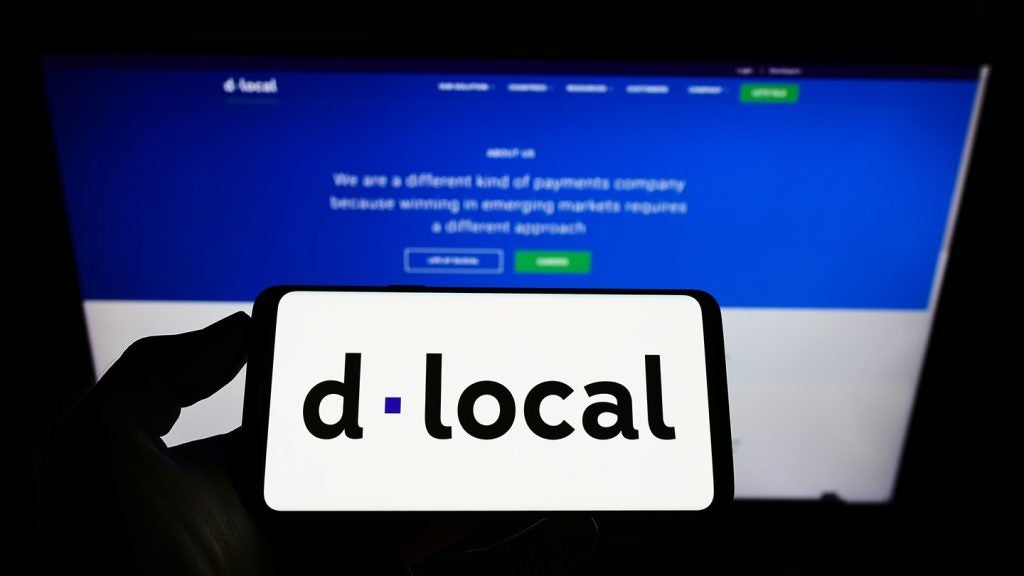As a country that is more commonly known for its
picturesque scenery and cold war relics than for its banking
industry, Bulgaria’s payment sector is proving that not only can it
weather the economic crisis, but that it is a technological leader.
UniCredit Bulbank’s Slavka Valkova spoke to John Hill about the
history of the market.
Bulgaria, along with many other countries in the Central and
Eastern European region, was hit particularly hard by last year’s
economic turbulence. A flurry of recent predictions has emerged,
speculating about how far away the bottom of the slump is and how
long it will be before Bulgaria can climb out again, a situation
made even more difficult by the outgoing government’s refusal to
accept the crisis was even occurring until it was too late.
The situation has become so fraught that after recently inviting
the International Monetary Fund to investigate the country’s
finances, Bulgaria’s new centre-right cabinet of the GERB party,
which won July’s elections, has cut spending by 15 percent. It is
also taking action to ensure reduction of tax evasion and smuggling
in an attempt to avoid an end-of-year deficit and reduce pressure
on Bulgaria’s exchange rate with the euro.
As the largest bank in Bulgaria by assets, and a subsidiary of
Italian banking giant UniCredit, UniCredit Bulbank hit the
headlines recently when its chief economist Kristofor Pavlov
branded Bulgaria’s fiscal policy as one of the slackest in the
region. He went on to say the country would suffer its worst
economic slump in the third quarter of 2009, only bouncing back in
late 2011.
Card market ripe for growth
Despite the dour predictions, there are still areas of the
country’s economy that are weathering the crisis, and the nascent
card market looks as if it will continue to see growth in the
coming years.
How well do you really know your competitors?
Access the most comprehensive Company Profiles on the market, powered by GlobalData. Save hours of research. Gain competitive edge.

Thank you!
Your download email will arrive shortly
Not ready to buy yet? Download a free sample
We are confident about the unique quality of our Company Profiles. However, we want you to make the most beneficial decision for your business, so we offer a free sample that you can download by submitting the below form
By GlobalDataSlavka Valkova, head of UniCredit Bulbank’s cards division, spoke
to CI about how the card industry within the country only recently
came about.
“The card market in Bulgaria is quite young,” Valkova said.
“The banks here started in the card business in 1995 with debit
cards, and even now we are still a debit card-heavy society. A few
years ago the government decided that all state company employees
should receive their salaries through debit cards, which meant a
massive increase in card issuance, and which also led to the
situation we have at the moment, which is about 6.7 million debit
cards and just under 1 million credit cards,” she said.
“Maestro cards are currently the prevailing brand in Bulgaria,
although Visa is very close in numbers and is currently issuing at
a higher rate than Maestro. This comes despite Visa entering the
Bulgarian market much later than MasterCard,” Valkova added.
She went on to explain about the bank’s current credit/debit card
balance.
“Several years ago the bank started issuing credit cards,” Valkova
said. “These are still not used by very many consumers, who
perceive that credit cards are for more affluent members of
society, or alternatively for use travelling abroad. Despite this,
we have certainly seen a marked increase in domestic use of credit
cards. The average transaction for a credit card is BGN140 [$105]
at POS terminals, while for debit cards it is BGN70.”
Although the card market is still young in the country, Bulbank is
expanding rapidly. By the end of 2008 it had issued 767,000 debit
cards and 44,000 credit cards during the year, with 553 ATMs and
4,525 POS terminals in place. The number of POS terminals increased
massively, with 43 percent more in 2008 than 2007.
According to Valkova, most transactions are done via ATMs.
She added: “Payment cards are used at ATMs mostly, with 78 percent
of all transactions taking place at an ATM, 16 percent at POS
terminals and 4 percent actual payment through the ATM. Bulgaria is
relatively advanced in this respect, as customers can pay their
domestic bills through ATMs, including electricity, telephone and
heating.”
In terms of prepaid cards, Bulgaria is at an impasse, with current
government legislation prohibiting the issue of cards without the
name of the cardholder on, in an attempt to reduce fraud within the
country. While this doesn’t prohibit prepaid use altogether, it has
stopped any off-the-shelf purchases, especially as instant issuance
is almost nonexistent in the country.
“The Bulgarian national bank introduced rules that prohibited
issuing cards without the cardholders name on, which means that we
can’t sell prepaid cards through a third party, one of the largest
channels for the prepaid market,” Valkova told CI.
“They can potentially still be sold at the branches, but
personalisation takes a few days because we don’t have instant
issuing, and so with prepaid cards it is simply not feasible,
especially now during the crisis, when each expenditure has to be
carefully rationalised.”
Banks rein in lending
The economic turmoil has meant that Bulbank, like many other banks,
has had to curb its lending practices. According to its 2008 annual
report, growth in outstanding loans to households and non-financial
corporations fell to 32.2 percent in December, from 54.1 percent in
June, and 65 percent at the end of 2007.
The reduction was mostly reflected in the reduction in the supply
of new credit and the tightening of eligibility standards, applied
to prospective customers on the lending side.
On top of which, costs of credit increased and the worsening
economic outlook urged companies and households to reconsider their
spending priorities. Likewise, customer deposits lost momentum in
the last three months of the year and reduced the annual growth
rate to just 7.5 percent in December 2008.
Valkova said of the lending shift: “We revised our lending rules
and now only approve customers with a lower debt ratio than
before.
“The view on credit cards is changing in the country, and we are
starting to move our focus away from our affluent customers more
towards the mass market. Banks understand that it’s not only the
affluent customers that are profitable, and that’s why we are now
addressing the mass market, offering them pre-approved credit card
limits, and so increasing our card portfolio.”
Pushing forward with innovation
One of the major innovations within the Bulgarian market is
Bulbank’s new Visa Europe VPay debit card.
According to Valkova, the card is a major step forward in fraud
prevention, and is unique in Europe.
“VPay cards are a relatively new addition to the Bulgarian market
and their take-up has been very positive,” she said. “Bulbank has
been the first in the market to issue our specific type of VPay
card. Germany and Italy were the first to issue VPay
internationally, but what they did was to put on the magnetic
stripe for the domestic scheme and have the chip for international
use.
“UniCredit Bulbank was the first bank to risk issuing a pure EMV
VPay card. The magnetic stripe is used only to access ATMs, while
the chip is used for all other transactions. In fact, since we have
started issuing the card we have seen absolutely no cases of fraud
at all.”
Despite the issuance of the pure EMV card, Valkova explained that
in general there have been varied results with new payment
technologies in Bulgaria.
“We had started to work on mobile payments, but it was before the
crisis, and since then we have put development on hold,” she
said.
“Next year we will come back to mobile payment technologies, and it
is certainly something we are very interested in. Contactless on
the other hand is only used for small payments and in places where
fast service is very important, and there is no real demand for
this in Bulgaria at the moment.”
She continued: “Having said that, I think that in terms of banking
technology we are quite far ahead compared to some other countries,
and to this extent we will keep implementing new technologies and
new services.
“Bulbank has a lot of services offered at ATMs, on the internet,
and in the e-commerce arena. In fact we launched 3D Secure [an
online authentication solution] a month ago for issuing, which I
think shows that we are certainly a market leader with technologies
that we offer.
“We are also keen to introduce new technologies so that the
Bulgarian market is one of the best developed around.”







